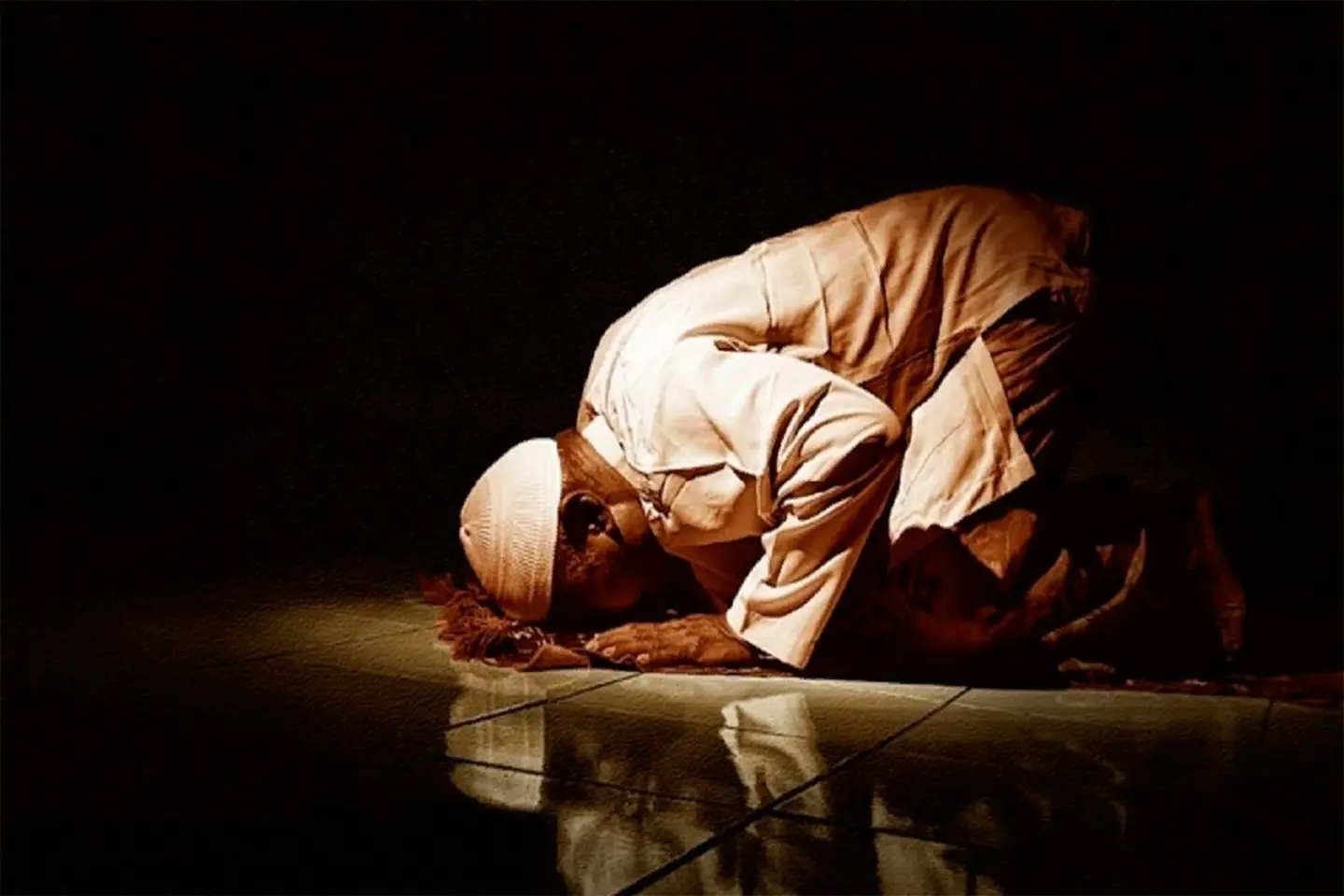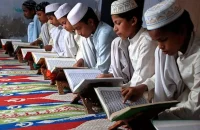salah in islam is the pillar of religion, an obligation of the Lord of the Worlds, and the ascension of the believers. Whoever maintains it will have light, proof, and salvation on the Day of Resurrection, and whoever does not observe it will have no light, proof, or salvation on the Day of Resurrection.
salah islam is a sign of the connection between the servant and the Lord Almighty, and we can review dear reader, you have some important points about this important obligation benefits of salah in islam.
Definition of salah islam
salah in islam is defined linguistically as supplication, but terminologically it is the worship of Allah – the Almighty – with specific actions and words, beginning with the takbir and concluding with the salutation.
It is worth noting that the obligation of salah in islam is one of the things that is necessarily known from the religion. Its obligation has been indicated by the Holy Qur’an, the Sunnah of the Prophet, and the consensus of the nation, as Allah said:
(قُل لِعِبادِيَ الَّذينَ آمَنوا يُقيمُوا الصَّلاةَ)
Conditions of salah islam
A condition is defined as something whose existence does not necessitate existence, and whose nonexistence necessitates nonexistence. The conditions for the validity of salah islam are what the validity of prayer depends on their presence. salah in islam is invalidated if one of the conditions is not met, and their explanation follows:
1-The beginning of the time:
The beginning of the time is one of the most important conditions for the validity of salah in islam, as salah islam is a specific act of worship at certain times, and it is not valid outside of its time. The Messenger of Allah – may Allah bless him and grant him peace – explained in many hadiths the time of each prayer in detail.
2-Covering the private parts:
The scholars unanimously agreed that a salah islam with the private parts uncovered is invalid. The consensus was conveyed by Ibn Abd al-Barr, may God have mercy on him, where he said: “They unanimously agreed that the prayer of one who leaves his garment is invalid, while he is able to cover himself with it and prays naked.”
The private parts of the worshipers are divided into several categories, namely: the deep private parts; It includes the entire body except the face and hands, and it is the private parts of an adult woman.
The middle private parts, which are between the navel and the knees, are the private parts of those who are ten years old and above, and the light private parts, which are the kissing and anus only, and are the private parts of a male from seven to ten years of age.
3-Purity:
Purity is divided into two types: Purity from impurity, purity from impurity, and purity from impurity in three places: It is the body, the clothing, and the place of prayer. The salah islam is invalidated if it is performed with knowledge of the presence of impurity in one of the three places.
As for purity from impurity, it is divided into purity from a major impurity, and purity from a minor impurity. The scholars have unanimously agreed on the invalidity of the prayer of one who has innovated, and they cited as evidence what was narrated.
On the authority of the Messenger of Allah – may Allah bless him and grant him peace – that he said: (Allah will not accept the prayer of any of you if he breaks his fast until he performs ablution).
4-Facing the Qiblah:
The scholars unanimously agreed that prayer is invalid if one does not face the Qiblah while being able to face it.
5-Intention:
Since intention is a condition for the validity of salah islam, and whoever prays without intention, his prayers are invalid, in confirmation of what Omar Ibn Al-Khattab – may Allah be pleased with him – narrated on the authority of the Messenger of Allah – may Allah bless him and grant him peace – that he said: (Actions are but by intentions, and every person will have but what he intended.).
Pillars of salah islam
The pillars of salah in islam are considered among the most important rulings on salah islam, as leaving one pillar, whether intentionally or by mistake, invalidates the salah islam. The pillars of salah in islam can be explained as follows:
1-Standing: It is necessary to stand with the ability to do it in the obligatory salah islam, according to the words of the Messenger of Allah, may Allah bless him and grant him peace: (Pray standing, and if you are not able, then sitting, and if you are not able, then lying on your side). As for voluntary prayers, it is permissible to perform them standing or sitting.
2-The opening takbir: The salah in islam must be opened with the takbir, in accordance with what Ali bin Abi Talib – may Allah be pleased with him – narrated on the authority of the Prophet – peace and blessings be upon him – that he said: (It is forbidden to say takbir, and it is permissible to say takbir).
3-Reciting Al-Fatihah: Al-Fatihah must be recited in every rak’ah by the imam, the one praying behind him, and the individual, and the prayer is not valid if it is not recited.
In accordance with what was narrated on the authority of the Messenger of Allah – may Allah bless him and grant him peace – that he said: (There is no prayer for whoever does not recite the Fatiha of the Book).
4-Bowing: It is obligatory to bow in every rak’ah in salah in islam, and this has been proven in the Qur’an, Sunnah, and consensus.
5-Rising from bowing: After completing bowing, one must stand straight and stand as before, and the evidence for this is the action of the Messenger of Allah, may Allah bless him and grant him peace.
6-Prostration: salah in islam is not valid except by prostrating twice in each rak’ah, and prostration is done by placing seven limbs on the ground, namely: (the forehead, the hands, the knees, the nose, and the tips of the feet).
7-Raising from prostration: It is necessary to sit between the two prostrations, in accordance with the words of the Mother of the Believers Aisha.
May Allah be pleased with her – when she described the action of the Messenger, and she said: (And when he raises his head from prostration, he does not prostrate until he is completely seated).
8-The last tashahhud, sitting for it, and sending blessings upon the Prophet, peace and blessings be upon him: which is to say: “O Allah, bless Muhammad…” and anything more than that is part of the Sunnah.
9-Reassurance: It is necessary to remain calm in all the actions mentioned, even if they are few. If there is no reassurance in the salah in islam, it is invalidated and must be repeated.
10-Arrangement: The previously mentioned pillars must be arranged according to what they mentioned, and the evidence for this is the action of the Prophet, peace and blessings be upon him.
11-Surrender: Surrender is a sign of the end of salah islam and dissolution of it.
salah islam duties
The duties of salah in islam differ from its pillars in that neglecting an obligatory prayer by mistake does not invalidate the prayer, but rather forces it into the prostration of forgetfulness. The following is an explanation of the duties of salah islam:
- Takbirat: It is obligatory to say takbir when moving from one pillar to another.
- Listening: The imam and the person praying alone must say: “Allah hears him who praises Him” when rising from bowing, but the one who is praying behind him is not obligated to say it.
- Praise: The imam, the person praying behind him, and the one praying alone must say: “Our Lord, praise be to You” after rising from bowing.
- Praising Allah in bowing: You must say: “Glory be to my Lord the Great” while bowing.
- Glorifying Allah during prostration: It is necessary to say: “Glory be to my Lord, the Most High” while prostrating.
- Asking forgiveness between the two prostrations: You must say “Lord, forgive me” while sitting between the two prostrations. The first tashahhud and sitting for it.
benefits of salah in islam
The benefits of salah in islam are not limited, which are lost by those who do not adhere to this timed obligation. It includes religious, cardiac, psychological, social and other benefits, and among benefits of salah in islam:
- salah in islam is comfort for the heart and reassurance for the heart and soul.
- salah in islam is a light for a person, and his share of the light of Allah Almighty is proportional to his prayer. Because of it, his life is illuminated and he feels comfort and connection with his Creator.
- The righteousness of the work is equal to the righteousness of the servant’s prayer. In the hadith: The first thing a servant will be held accountable for on the Day of Resurrection is prayer. If it is righteous, all of his deeds will be righteous for him, and if it is invalid, all of his deeds will be invalid.
- Whoever maintains it has a covenant with Allah that He will admit him to Paradise: Whoever brings them will not lose anything out of disdain for their right, he will have a covenant with Allah that He will admit him to Paradise.
- salah islam is a protection from panic and anxiety, an initiative towards goodness, and a distance from greed
- salah in islam helps the servant to refrain from immorality and evil.
- Among its benefits is that it is forgiveness for transgressions and sins and what the believer commits during the day and night
- The person performing the salah in islam will be known on the Day of Resurrection by his fringes and radiance, as a result of ablution.
The Messenger of Allah, may Allah bless him and grant him peace, will call him from afar, and he said: On the Day of Resurrection, my nation will be called turbid and disfigured by the effects of ablution. (Narrated by Al-Bukhari and Muslim)
Conclusion
At the conclusion of the article, salah in islam is the second pillar of Islam, and it is the pillar of the Islamic religion and obligatory for every Muslim. Therefore, in our article, we discussed all the provisions related to salah islam and its duties, in addition to that we mentioned some of the benefits of salah in islam.




